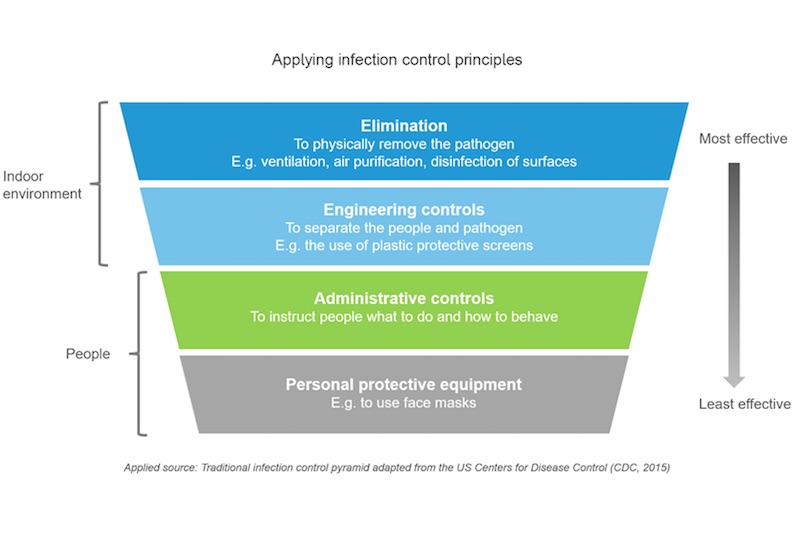 Cleanzine: your weekly cleaning and hygiene industry newsletter 26th June 2025 Issue no. 1168
Cleanzine: your weekly cleaning and hygiene industry newsletter 26th June 2025 Issue no. 1168
Your industry news - first
The original and best - for over 20 years!
We strongly recommend viewing Cleanzine full size in your web browser. Click our masthead above to visit our website version.
Indoor air should be the key factor in combating viruses
 The effectiveness and predictability of combatting the pandemic can be improved by direct changes to indoor environments. Advanced indoor solutions can reduce the risk of a virus spreading by up to 90%, depending on the premises. However, even simple means are worth trying.
The effectiveness and predictability of combatting the pandemic can be improved by direct changes to indoor environments. Advanced indoor solutions can reduce the risk of a virus spreading by up to 90%, depending on the premises. However, even simple means are worth trying.
"As the epidemic continues, people will need to work and study in shared facilities, and move around and shop in public and commercial buildings as safely as possible," says Tarja Takki-Halttunen, vice chair of the Board of Directors of Finnish indoor air company Halton.
"Individual behaviour and measures are very important in this regard, but experience shows that human behaviour tends to be inconsistent. There is an urgent need to improve the safety of indoor spaces by having a bigger, direct impact on the physical environment."
To reduce the risk of infection via ventilation, Halton recommends a five-point list which includes turning up the ventilation; checking the air distribution; purifying indoor air; ventilating rooms between events such as meetings; and technical maintenance to ensure that air conditioning and air purification are functioning well.
The most promising situation is achieved by combining these with other precautions, such as protective plexiglass used as mechanical virus barriers, management of the space load, hygiene instructions and, where possible, personal protection with face masks. The various levels of infection management are routine in hospitals, where pathogens are common.
Halton Group is a global technology leader in indoor air solutions for demanding commercial and public premises, workspaces, healthcare institutions and laboratories, professional kitchens and ships as well as energy production and industrial environments. It was only natural perhaps that requirements at its new head office in Tripla, Helsinki, have been raised due to the pandemic.
In Spring 2020, Halton performed a case study of its premises, including a risk analysis of viral exposure. This led to a model for a safe return to work, taking account of matters such as the occupancy rate of the premises, the location of active workstations, air flow control, the level of ventilation, and separate air purification. No Coronavirus infections have been detected so far in Halton's office.
"We may still have much to learn about this virus, but that does not stop us from acting rationally on the basis of what we do know. Now is the time to use all available means, starting with the easiest such as turning up the air conditioning. You should ask a professional about any issues related to the direction of airflows and active air purification," says Tarja.
Halton was founded in Finland in 1969. Today, Halton Group employs 1,600 people in 37 countries. The company's turnover in 2019 was approximately 237 million euros.
1st October 2020







